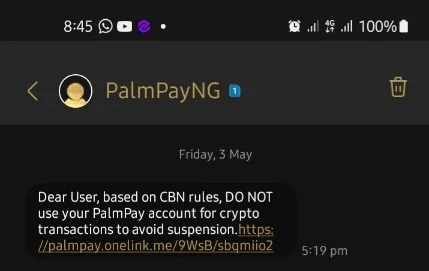The volatile world of cryptocurrencies has taken Nigeria on a rollercoaster ride, marked by regulatory shifts and uncertainty. After a two-year freeze on crypto transactions, a brief thaw with the Central Bank offered hope, only to be overshadowed by looming threats of a P2P trading ban. Hold tight as we navigate this turbulent terrain once again.
In December 2023, crypto enthusiasts celebrated a breakthrough as the Central Bank of Nigeria (CBN) lifted its ban on cryptocurrency transactions. Talks of licensing between the Securities and Exchange Commission (SEC) and crypto exchanges signaled Nigeria’s embrace of the digital asset revolution.
Table of Contents
A Sharp Turn: Allegations and Crackdowns
However, the optimism was short-lived. Authorities attributed volatility in the foreign exchange market to crypto speculation, culminating in a bombshell revelation in February 2024. The CBN Governor disclosed allegations of $26 billion in untraceable transactions involving Binance, triggering a crackdown on the global exchange and freezing of accounts linked to P2P activities.
Regulatory Confusion
Recent events have added to the confusion. Directives to cease opening new accounts issued to fintech companies raised eyebrows, with the source of the order remaining elusive. Concerns about rapid account creation facilitating crypto trading, voiced by the National Security Adviser (NSA), have complicated the regulatory landscape intended to promote financial inclusion.
Addressing Concerns: P2P Trading under Scrutiny
The CBN’s focus on P2P trading stems from concerns of market manipulation. Reports suggest coordinated trading on platforms like Binance may be artificially inflating cryptocurrency prices, impacting the naira exchange rate. With the aim to curb manipulative activities and regain control of the FX market, the CBN eyes restrictions on P2P trading.
Looking Ahead: Uncertain Future of P2P Cryptocurrency Trade


While a formal ban notification is pending, fintech players such as Moniepoint, Paga, and Palmpay brace for potential account freezes linked to cryptocurrencies. The ramifications of a P2P ban are worrisome, potentially stifling innovation in Nigeria’s fintech space and deterring legitimate crypto users. Enforcement remains a looming question amid regulatory uncertainties.
Navigating the Crypto Rollercoaster
Nigeria’s cryptocurrency landscape remains unpredictable, characterized by regulatory twists and turns. As highs and lows continue, the trajectory of P2P trading hangs in the balance. Stay tuned as the saga unfolds, for this story is far from its conclusion.

